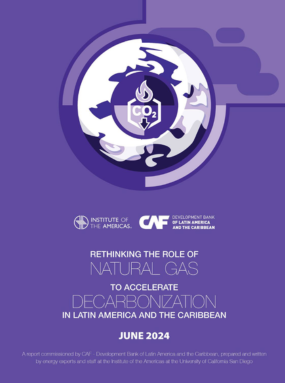| dc.contributor.author | Ghazarian, Agustín | |
| dc.contributor.author | Champetier, Coline | |
| dc.contributor.author | Quiroga, Darío | |
| dc.contributor.author | Baqueriza, Francisco | |
| dc.contributor.author | Barros, Nicolás | |
| dc.contributor.author | Souilla, Laura | |
| dc.contributor.author | Sanz, Ramón | |
| dc.contributor.author | Gomelsky, Roberto | |
| dc.contributor.author | Salinas, Edgar | |
| dc.contributor.author | Rios, Juan | |
| dc.contributor.author | Cont, Walter | |
| dc.coverage.spatial | América Latina y el Caribe | es_ES |
| dc.date.accessioned | 2024-12-09T14:07:22Z | |
| dc.date.available | 2024-12-09T14:07:22Z | |
| dc.date.issued | 2024 | |
| dc.identifier.citation | Ghazarian, A., Champetier, C., Quiroga, D., Baqueriza, F., Barros, N., Souilla, L., … Cont, W. (2024). Just Energy Transition / Conceptual Framework for the Region. Retrieved from https://scioteca.caf.com/handle/123456789/2351 | en_GB |
| dc.identifier.uri | https://scioteca.caf.com/handle/123456789/2351 | |
| dc.description.tableofcontents | The just energy transition in Latin America and the Caribbean seeks to balance the reduction of greenhouse gas (GHG) emissions with economic and social development. This approach, aligned with the Paris Agreement, acknowledges the region's particular characteristics: low dependence on coal, high participation of renewable energy, and significant challenges such as poverty, inequality, and the projected growth in energy demand. The conceptual framework outlines four key objectives: defining the concept of a just energy transition tailored to the region, proposing indicators to monitor progress, assessing the baseline of national energy systems, and developing country-specific strategies. These studies highlight the need for technological, regulatory, and market-based solutions, as well as sustainable financing, to ensure a transition that reduces emissions while improving living standards and strengthening social equity. | |
| dc.language.iso | en | es_ES |
| dc.rights | CC-BY-NC-ND | es_ES |
| dc.rights.uri | http://creativecommons.org/licenses/by-nc-nd/4.0/ | es_ES |
| dc.subject | Ambiente | es_ES |
| dc.subject | Cambio climático | es_ES |
| dc.subject | Comercio internacional | es_ES |
| dc.subject | Energía | es_ES |
| dc.subject | Políticas públicas | es_ES |
| dc.subject | Recursos naturales | es_ES |
| dc.subject | Sector productivo | es_ES |
| dc.subject | Transformación productiva | es_ES |
| dc.title | Just Energy Transition / Conceptual Framework for the Region | es_ES |
| dc.type | Book | es_ES |
| caf.relation.languageVersion | 123456789/2346 | |
| caf.relation.languageVersion | 123456789/2342 | |




